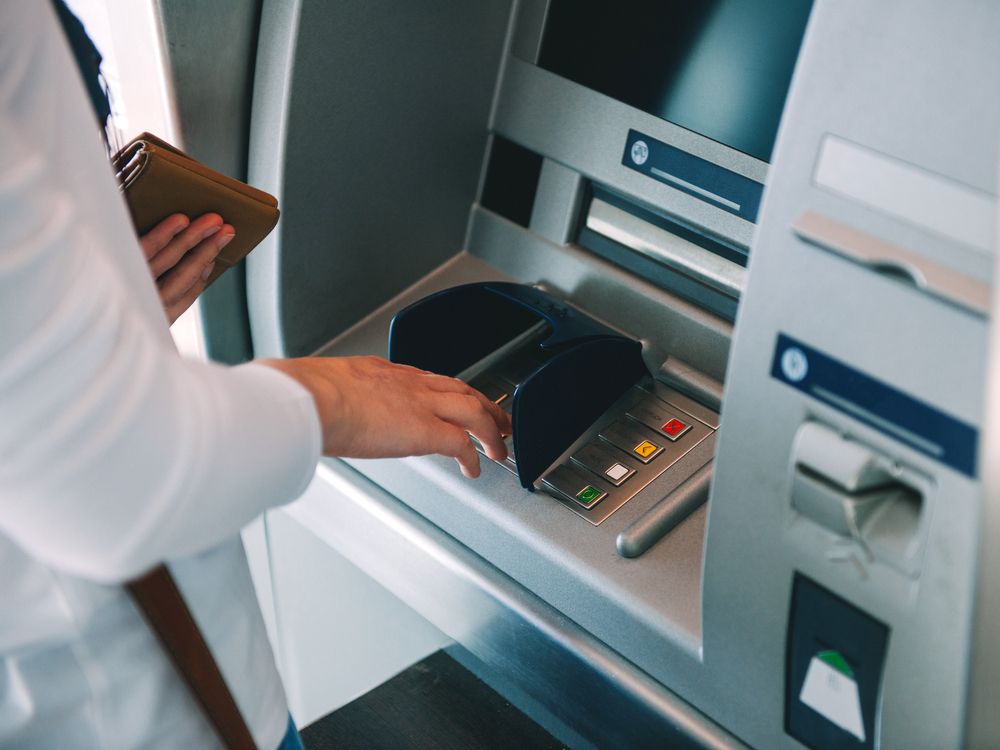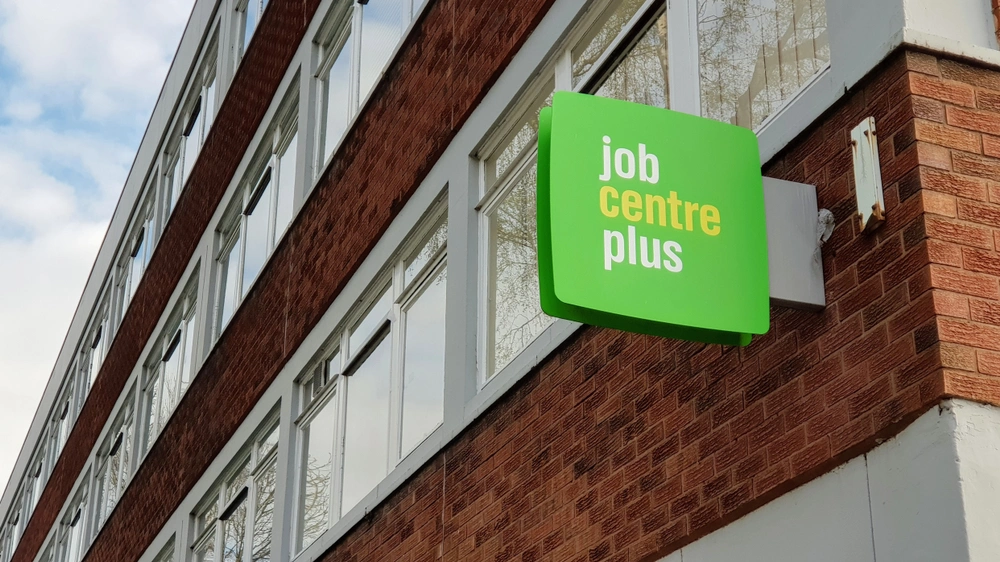
Why have I been rejected for a debt consolidation loan?
Find out why you may have been refused a debt consolidation loan and discover ways to improve your eligibility.
7 min read
Discover everything you need to know about credit cards, loans, mortgages, insurance and more with our in-depth guides. Written by experts, we aim to answer all your burning finance questions - in an easy-to-understand way.

Find out why you may have been refused a debt consolidation loan and discover ways to improve your eligibility.
Article written by Verity Hogan
7 min read

Learn how to get approved for personal loans with fair credit. Understand UK credit scores, find the best rates, and explore alternatives.
Article written by Zubin Kavarana
5 min read

Learn what instant loans are, how to get one even with bad credit, and important things to consider before borrowing.
Article written by Zubin Kavarana
5 min read

Learn what emergency loans are, how to get one quickly, options with bad credit, and whether they're right for your situation.
Article written by Zubin Kavarana
5 min read

Thinking about getting a credit card? Discover the pros, cons and whether it’s the right choice for your finances.
Article written by Fiona Peake
7 min read

Lost your credit card? Don’t panic – act fast. Here’s how to report it, protect your money, and get a replacement quickly.
Article written by Fiona Peake
4 min read

Learn about long-term loans in simple terms - how they work, their pros and cons, interest rates, and how to get one, even with bad credit.
Article written by Zubin Kavarana
5 min read

Learn what a 12 month loan is, how to apply, options for bad credit, and alternatives in this simple UK guide to short-term borrowing.
Article written by Zubin Kavarana
5 min read

Learn what guarantor loans are, how they work, and if they're right for you. A simple guide to borrowing with someone else's support.
Article written by Zubin Kavarana
5 min read

Struggling with multiple debts? Learn whether debt consolidation or a balance transfer would work better for your situation in this simple, straightforward guide.
Article written by Zubin Kavarana
5 min read

Discover the truth about guaranteed loans, what lenders check, how to improve your chances, and where to find help if you're struggling with debt.
Article written by Zubin Kavarana
5 min read

Discover the truth about 'no credit check loans'. Learn about soft vs hard credit checks and find better options if you have a poor credit history.
Article written by Zubin Kavarana
5 min read

Find out if 0% interest loans exist. Discover government schemes, interest-free credit options, and how to choose the right one for your needs.
Article written by Zubin Kavarana
5 min read

Wondering whether to close an unused credit card? Learn how it can affect your credit score and what to consider before making a decision.
Article written by Fiona Peake
4 min read

It’s possible to pay your bills with a credit card. Learn which bills you can pay, the pros and cons, and how it affects your credit score.
Article written by Fiona Peake
4 min read

Learn how to spot and avoid credit card fraud. Our guide covers common scams and tips to help you stay safe and protect your details.
Article written by Fiona Peake
6 min read

Learn how to activate your new credit card with our simple guide. From online activation to digital verification methods, we cover all the ways to get your card ready to use.
Article written by Fiona Peake
5 min read

A credit card lets you borrow money from a lender to pay for things. You can use it in shops, online, or over the phone – just like a debit card – but instead of spending your own money, you're borrowing it. You’ll repay what you owe later, either in full or in instalments.
Article written by Fiona Peake
5 min read

Discover safe ways to borrow against your home. Learn about equity release, remortgaging and alternatives to access your property's value.
Article written by Zubin Kavarana
5 min read

Learn how long it takes to get approved for a credit card, and how long you can expect to wait until your card arrives. Plus, things you can do to speed up the process.
Article written by Fiona Peake
3 min read

Find out what information and criteria you need to provide lenders in order to get a homeowner loan.
Article written by Adele Kitchen
7 min read

If you’re considering applying for car finance and are unsure about the process, this guide will help you through the key steps.
Article written by Sarah Neate
5 min read

Car finance isn’t off the table if your credit score is going through a rough patch, but there are some considerations to keep in mind.
Article written by Sarah Neate
5 min read

Our guide will define PCP (personal contract purchase), break down exactly how it works, and give you the information you need to help you decide whether it could be a suitable finance option for you.
Article written by Verity Hogan
5 min read

If you think you might struggle to make a car finance payment, our guide will help guide you towards support and available solutions.
Article written by Adele Kitchen
7 min read

Our guide explains how hire purchase works, compare its advantages and disadvantages, and help you decide whether it might be the right finance option for you.
Article written by Verity Hogan
5 min read

Undecided whether it’s better to buy or apply for finance? We run through the pros and cons of each to help make the decision that bit easier.
Article written by Adele Kitchen
6 min read

Discover the difference between being a car owner and a registered keeper, and find out who legally owns a car when you have outstanding finance.
Article written by Adele Kitchen
6 min read

If you’ve had a CCJ in the past it may affect your chances of securing car finance, but it’s not impossible to find a deal. Check out our guide to find out more about CCJ car finance and how to find the right option for you.
Article written by Verity Hogan
7 min read

When applying for car finance, eligibility checks are performed to predict what type of borrower you’ll be and whether you can afford the loan. Read our guide to learn more about the most common checks you can expect to face.
Article written by Verity Hogan
5 min read

Discover what classifies as an insurance write off and how it could impact you if you have outstanding car finance.
Article written by Adele Kitchen
6 min read

Part exchanging a car could help you cut the cost of your next vehicle or provide a deposit for a new car finance deal. But how does it work and what can you do to ensure you receive the best value? Our guide is here to help.
Article written by Verity Hogan
6 min read

Whether you’re looking to upgrade your car or are struggling to make your repayments, it may be possible to end your agreement early and sell a car on finance.
Article written by Verity Hogan
8 min read

With a range of different types of car finance available, it can be tough to know which one is right for you and your circumstances. Check out our guide to find out more so you can make an informed decision.
Article written by Verity Hogan
5 min read

Considering car finance? Find out where you stand without affecting your credit score by using our free car finance eligibility checker to get a no- obligation quote in minutes.
Article written by Verity Hogan
4 min read

Whether you’re looking to spread the cost of a new car, improve your credit score, or explore the different types of loan available, read on to find out more about the pros and cons of car finance.
Article written by Verity Hogan
8 min read

Find out what car finance companies look for when you apply and how you can improve your chances of approval.
Article written by Adele Kitchen
6 min read

Considering used car finance? If you’re looking to spread the cost of buying a second-hand car into affordable monthly repayments, this guide should help.
Article written by Verity Hogan
9 min read

There isn’t a minimum credit score needed for car finance, but a higher score can result in a cheaper deal. Some car finance companies specialise in car buyers with bad credit.
Article written by Emma Lunn
4 min read

Read our guide to find out more about the options available if you need to end your car finance agreement early.
Article written by Verity Hogan
9 min read

If your circumstances have changed, you may need to swap your car or finance deal before reaching the end of your term. Find out more about the options available to you.
Article written by Verity Hogan
8 min read

Find out all you need to know about personal loans for purchasing a car and how they compare to other types of car finance.
Article written by Adele Kitchen
5 min read

While an IVA can be an effective solution if you’re struggling to repay your debts, it may affect your chances of securing a car loan. Check out our guide to find out more about IVA car finance and how to find the right deal for you.
Article written by Verity Hogan
7 min read

Whether you’re applying for a loan or aiming to reduce the repayments on your existing deal, there are steps you can take to find cheaper car finance.
Article written by Verity Hogan
8 min read

Considering buying a car on finance for someone else? Find out the options available and the potential drawbacks with our guide to car loan terms and conditions.
Article written by Verity Hogan
6 min read

Voluntary termination is your legal right to end a car finance agreement early and walk away. Find out how it works, how it affects your credit score, and whether it could be the best choice for you.
Article written by Adele Kitchen
8 min read

A full UK driving licence is often required when applying for a car loan, but getting car finance without one isn’t impossible. Find out more about the options available in our guide to getting car finance without a driver’s licence.
Article written by Adele Kitchen
8 min read

Car insurance is one of the most important things to consider when buying a car on finance. But what are the different types available, how can you find the cheapest policy, and should you get gap insurance?
Article written by Adele Kitchen
7 min read

Torn between leasing vs buying a car on finance? Discover the differences between each option, the restrictions that may apply, and how to decide which is right for you.
Article written by Adele Kitchen
6 min read

Guarantor car finance is a type of car loan where someone else agrees to step in and make the repayments if you can’t. Read our guide to find out more about guarantor loans, their pros and cons, and whether they might be a suitable option for you.
Article written by Verity Hogan
6 min read

If you’ve ever considered taking out PCP car finance, you may have heard about balloon payments. But what are they and how do they work? Find out more in our guide.
Article written by Verity Hogan
6 min read

If your circumstances have changed and your current car finance deal is no longer right for you, a refinance loan could help you keep your car and find terms better suited to your needs.
Article written by Verity Hogan
9 min read

If you’re currently facing bankruptcy or have been bankrupt in the past, it can affect your chances of securing a car loan. Check out our guide to find out more about bankruptcy and car finance.
Article written by Verity Hogan
7 min read

Whether you’re looking for interest-free car finance or have seen 0% APR loans advertised, our guide will explain exactly how these work to help you decide whether they’re the right choice for you.
Article written by Helen Fox
7 min read

Looking to buy more than one car on finance at the same time? Find out how in our helpful guide.
Article written by Verity Hogan
7 min read

Nobody wants to think about being a victim of theft, but there are steps you should consider if your vehicle is stolen during your car finance agreement.
Article written by Verity Hogan
7 min read

Whether you need to move quickly to secure your dream car, or you’re concerned about your eligibility, find out whether you can get an instant decision on your car finance application and how to speed up the process.
Article written by Verity Hogan
7 min read

Whether you’re selling your car to a private buyer, giving it to a family member, or trading it in at a dealership, you’ll need to transfer your car ownership. Find out how to complete the process online or through the post with this guide.
Article written by Verity Hogan
6 min read

Know how to check if a car you're interested in has outstanding finance and what you can do to handle it.
Article written by Verity Hogan
6 min read

Find out how a conditional sale agreement works, its pros and cons, and whether it might be the right option for you.
Article written by Verity Hogan
8 min read

Whether you’re looking for interest-free car finance or have seen 0% APR loans advertised, our guide will explain exactly how these work to help you decide whether they’re the right choice for you.
Article written by Verity Hogan
7 min read

What is PPI, how was it mis-sold in the past, and does it still have a role to play in car finance? Find out in our guide.
Article written by Verity Hogan
6 min read

If you’ve been unable to keep up with your repayments in the past, black box car finance with its in-built reminders could be a great option for you. Find out more in our guide.
Article written by Verity Hogan
8 min read

Wondering how car finance might affect your mortgage (or your chances of getting one)? Find out how a new or existing car loan can impact your credit score and affordability.
Article written by Verity Hogan
9 min read

If your car is worth less than your outstanding finance, you’ll be in negative equity. Find out what you can do in this situation and whether negative equity car finance could be an option for you.
Article written by Verity Hogan
10 min read

Whether you’re struggling to keep up with your repayments or simply need to change vehicle, you may be able to return a car on finance. Find out how in our guide.
Article written by Verity Hogan
7 min read

Amping up your stereo? Bodywork needs a makeover? Aero could do with a spoiler? Read on to find out if you can make modifications to a car on finance.
Article written by Verity Hogan
5 min read

If you’re struggling with debt and bailiffs get involved, your car may be at risk. But what if it’s on finance? Learn more about your rights in our guide.
Article written by Verity Hogan
8 min read

Learn how credit card interest works and the things you can do to reduce how much you pay in fees and interest.
Article written by Fiona Peake
5 min read

Wondering why your credit score is low after getting a credit card? Learn how applying for and using a credit card can affect your credit score.
Article written by Fiona Peake
3 min read

Learn how to get a credit card on a low income. Discover options for part-time workers, students, and those on benefits, plus tips to boost your approval chances.
Article written by Fiona Peake
6 min read

Find out exactly what documents you’ll need to apply for a credit card online or in person. Here are the details UK banks and providers need for your application.
Article written by Fiona Peake
5 min read

A bad credit score can limit your borrowing options and lead to higher costs. Learn what’s considered bad in the UK and how to improve your score.
Article written by Fiona Peake
8 min read

Wondering how many credit cards you should have? Discover the benefits and risks of multiple cards, and how they can affect your credit score.
Article written by Fiona Peake
5 min read

Section 75 protects credit card purchases between £100 and £30,000, allowing you to claim a refund if something goes wrong. Find out how it works, when it applies, and what protection is available outside of Section 75.
Article written by Fiona Peake
6 min read

Find out how long it takes to transfer balances between credit cards and get tips to make it quicker and easier.
Article written by Fiona Peake
4 min read

Read on to find out what loan-to-value means, and how it can affect you when considering a loan.
Article written by Zubin Kavarana
5 min read

Trying to decide between a credit card and a debit card? Learn which one best suits your financial needs, whether you want to build credit, avoid fees, or manage everyday spending.
Article written by Fiona Peake
3 min read

Discover how to get a credit card with no annual fee. Learn the benefits, drawbacks, and how to choose the right card for you.
Article written by Fiona Peake
5 min read

Find out if guaranteed approval credit cards really exist and how to increase your chances of being accepted with the right strategy.
Article written by Fiona Peake
4 min read

Find out how long you could take out a personal loan for, and what factors you need to consider before you agree on a loan term.
Article written by Alice Williams
6 min read

Find out if you should get a debt consolidation loan, and if so, what type of loan would suit you best. Plus, discover how to get approved for a loan and what the alternatives are.
Article written by Adele Kitchen
6 min read

Read our guide to explore some of the common loan types available. We highlight their key pros and cons so you can make informed financial decisions.
Article written by Zubin Kavarana
5 min read

Our guide looks at whether you can get a debt consolidation loan without collateral and the pros and cons of secured and unsecured finance.
Article written by Verity Hogan
6 min read

Want to build your credit score and avoid interest charges? Learn how to use your credit card smartly with 10 top tips from Ocean Finance.
Article written by Adele Kitchen
4 min read

If you find yourself in a situation where you’re unable to remortgage your property, this guide will help you find the options available to help you out.
Article written by Adele Kitchen
6 min read

If you’re unsure whether your credit score will hold you back from getting a mortgage approved, read our guide to find out what options are available.
Article written by Adele Kitchen
4 min read

Follow our 8 steps to help you get a mortgage if you have a less-than-perfect credit score, from saving a large deposit to applying in joint names.
Article written by Adele Kitchen
6 min read

Will credit card debt affect your mortgage application? What else will lenders look at on your application? Find out more in the Ocean Finance guide.
Article written by Adele Kitchen
12 min read

Find out what to do if you’re loan application has been declined, and how to improve your credit score for next time.
Article written by Adele Kitchen
6 min read

Find out what a secured loan is and how it’s different to a personal loan, with some useful examples.
Article written by Adele Kitchen
5 min read

Find out what APR means, what factors impact it, plus how to get a good APR on a loan to cut the cost of borrowing.
Article written by Adele Kitchen
5 min read

Find out what pre-approval means and what you can do to boost your eligibility for a loan.
Article written by Adele Kitchen
5 min read

Learn the differences between secured and unsecured loans, including benefits, risk, and key factors to help you choose the best option for your needs.
Article written by Adele Kitchen
5 min read

Find out the difference between a first and second charge mortgage and how many secured loans you can have on a single property.
Article written by Zubin Kavarana
6 min read

Discover what you need to be eligible for a secured loan, and what your finance options are if you have no mortgage.
Article written by Zubin Kavarana
7 min read

If you’re a homeowner, you can borrow money against your property. Find out the advantages and disadvantages of secured loans here to see if it’s right for you.
Article written by Zubin Kavarana
4 min read

Find out what personal loans can and can’t be used for, plus things to consider before you take out a loan.
Article written by Adele Kitchen
5 min read

Find out the pros and cons of short-term and long-term loans, what they can be used for, and which type of loan is easier to get with bad credit.
Article written by Adele Kitchen
7 min read

Do you need to top up your student loan for an unexpected bill? Find out if a student can get a personal loan plus how much you can apply for here.
Article written by Adele Kitchen
7 min read

If you’re considering taking out a loan, you may be unsure of how much to borrow. This guide explains what to think about when deciding on your loan amount.
Article written by Zubin Kavarana
4 min read

Arranging a loan can vary in time, depending on a number of factors. Read on to find out what you can do to have as smooth an application as possible.
Article written by Zubin Kavarana
5 min read

Find out what lenders look for when you apply for a homeowner loan, and if it’s possible to get approved with a bad credit history.
Article written by Adele Kitchen
7 min read

Find out what lenders look for when you apply for a homeowner loan, and the different types of homeowner loan available.
Article written by Adele Kitchen
6 min read

When getting a loan, you might wonder if you should choose a fixed or variable interest rate. We discuss the key differences to help you make a decision.
Article written by Zubin Kavarana
5 min read

Our guide looks at medical bill consolidation, the options available, and things to consider before applying for a loan.
Article written by Verity Hogan
5 min read

Are you unsure what the difference is between debt consolidation and debt management? We discover the pros and cons of each to help you decide which is the best option.
Article written by Adele Kitchen
5 min read

Find out if you can get a debt consolidation loan with a high debt-to-income ratio, and the steps you can take to improve your eligibility.
Article written by Verity Hogan
5 min read

Find out what debt consolidation options are available to you if you have a bad credit history and are struggling to get credit to pay off your debts.
Article written by Verity Hogan
7 min read

Our guide looks at the government debt consolidation advice and programmes available.
Article written by Verity Hogan
7 min read

Read on to find out how you can transfer the balance of one loan to another, plus what to consider before you do.
Article written by Zubin Kavarana
5 min read

Wondering how bankruptcy will affect your ability to get a loan? Read our guide to find out if it's a possibility and what you need to do.
Article written by Adele Kitchen
5 min read

Do you have bad credit and no guarantor? Find out what types of loans are available to you and how you can improve your eligibility.
Article written by Adele Kitchen
5 min read

If you don’t need to borrow much, bad credit doesn't have to get in the way of a personal loan. Find out more in the Ocean Finance guide.
Article written by Sarah Neate
4 min read

Learn what credit card utilisation is, how to calculate it, and why it matters for your credit score. Discover tips to manage it and improve your chances of being approved for borrowing.
Article written by Fiona Peake
5 min read

Wondering whether a business credit card could be right for you? Find out what sort of business purchases you could make with a business credit card and how to go about getting one.
Article written by Fiona Peake
6 min read

You could save money on interest, combine your debts and pay off what you owe faster with a balance transfer card. See how these fees affect your financial goals before applying.
Article written by Fiona Peake
3 min read

If you're a student and looking to get your first credit card, read on to find out how credit cards work, and if they’re right for you.
Article written by Josephine Haagen
6 min read

Being self-employed doesn’t have to be the end of your credit card road. Discover what your employment status means and lots of application-boosting tips here.
Article written by Fiona Peake
6 min read

Work out which debt is a priority and save on interest and charges. Learn if you should pay off your loan or credit card first with Ocean Finance.
Article written by Jimmy Coultas
9 min read

You don’t need to pay off your full credit card balance every month, but you’ll be charged interest if you don’t. Find out more in our quick guide.
Article written by Jimmy Coultas
4 min read

Wondering how you can improve your credit score and your chances of getting approved for credit? We’ve put together seven top tips to help.
Article written by Adele Kitchen
6 min read

Follow these tips to get the most out of your small business credit card.
Article written by Adele Kitchen
6 min read

Is a small business credit card something you've been considering? Read on to find out how many you can have at any one time
Article written by Fiona Peake
5 min read

Understanding the different types of credit card fees and interest charges can help you to avoid unnecessary expenses. Learn how to make the most of your credit card with our guide.
Article written by Fiona Peake
6 min read

Switching bank accounts can affect your credit score. Hard credit checks and overdraft applications will show on your credit report.
Article written by Emma Lunn
4 min read

Find out if being a sole trader or taking out a business credit card impacts your credit score. Plus how to apply for a business credit card of you're self-employed.
Article written by Fiona Peake
5 min read

A business card can be one way to improve your personal credit score, but this depends how responsibly you use it. Find out whether a business credit card is the best option for you.
Article written by Fiona Peake
5 min read

You might be able to do a balance transfer for someone else, but there are some things to consider. Learn what you can expect if you’re looking to balance transfer from someone else’s credit card.
Article written by Fiona Peake
5 min read

Find out the difference between a personal credit card and a business credit card and if you can use a personal credit card for business purposes or not.
Article written by Fiona Peake
6 min read

Transferring money from a credit card to your bank account can be useful, but it’s important to understand the costs. From cash advances to money transfer cards, explore the options and potential fees before making a decision.
Article written by Fiona Peake
5 min read

Withdrawing cash using your credit card is known as a cash advance and comes with high interest and fees. See how much a cash advance could cost and what the alternatives could be.
Article written by Fiona Peake
3 min read

If you’re retired or are close to retiring and want to know how this will affect applying for a credit card, Ocean has all the information you need.
Article written by Adele Kitchen
5 min read

If you need to borrow but have bad credit, you may be looking into a loan or a credit card. Find out which fits your needs in this guide.
Article written by Josephine Haagen
6 min read

Getting a business credit card can be harder if you've got less than perfect credit, but it isn't impossible. Find out what you need to consider before applying for a business credit card.
Article written by Fiona Peake
6 min read

Discover why paying your mortgage with a credit card is generally not recommended and explore alternative solutions to manage your mortgage payments effectively.
Article written by Fiona Peake
4 min read

Discover what you can use your credit card for, from everyday spending to big-ticket purchases. Learn what’s covered, when it’s worth using, and tips to stay in control.
Article written by Fiona Peake
4 min read

Follow these 7 steps to apply for a loan, and what to expect at each stage, to make it as smooth as possible.
Article written by Adele Kitchen
5 min read

Find out what qualifies someone as a first-time buyer, and the steps needed to get on the housing ladder.
Article written by Adele Kitchen
4 min read

Find the best loan options for young adults. We cover everything you need to know to make informed financial decisions and get the funding you need.
Article written by Zubin Kavarana
8 min read

Find out how quick loan approval is with an instant decision loan, as well as the pros and cons, and alternatives.
Article written by Adele Kitchen
5 min read

Find out how credit builder loans work, the pros and cons, and the alternatives.
Article written by Adele Kitchen
8 min read

If you’re looking to pay off your existing credit card debt with a credit card, make sure you read our in-depth guide to learn the ins and outs.
Article written by Fiona Peake
5 min read

If you’re thinking about taking out a joint loan with somebody else, read our guide first to make sure you’ve covered all bases.
Article written by Adele Kitchen
5 min read

It’s important to think about the responsibility a loan brings. We’ve put together some points to consider, so your decision can be made with confidence.
Article written by Zubin Kavarana
5 min read

What exactly do lenders look for when you apply for a secured loan? Find out the criteria here in this simple guide from Ocean Finance.
Article written by Zubin Kavarana
6 min read

A secured loan is where you borrow money against an asset like your home. Learn how to apply for a secured loan with these 3 simple steps.
Article written by Zubin Kavarana
5 min read

If you’re worried that a bad credit rating is preventing you from being accepted for a secured loan, read on to learn what your options are.
Article written by Zubin Kavarana
5 min read

Find out whether getting a personal loan for home improvements is the right choice for you, or whether you should consider a different option.
Article written by Adele Kitchen
6 min read

Follow our guide and learn how to find and apply for a loan, plus boost your chances of approval.
Article written by Adele Kitchen
5 min read

Are you unemployed but need to borrow? Learn how you can apply for a personal loan without a job in the comprehensive guide from Ocean Finance.
Article written by Adele Kitchen
5 min read

If you need to borrow money quickly, you might be considering an overdraft or a loan. Find out which one is right for your circumstances here.
Article written by Adele Kitchen
5 min read

If you’ve just moved to you UK and are planning to apply for a loan, read our handy guide to find out how to go about it and what you’ll need to know.
Article written by Zubin Kavarana
5 min read

Find out how to borrow money for your home improvements, whether you’re a tenant, or a homeowner with no equity.
Article written by Adele Kitchen
6 min read

Learn when and how to pay your credit card bill to avoid interest charges, late fees, and damage to your credit score.
Article written by Fiona Peake
5 min read

Need more time to pay your loan? Find out how to apply for a loan extension and benefits and disadvantages you need to consider first.
Article written by Jimmy Coultas
3 min read

Thinking about consolidating your debts, but you want to know more? Read on for answers to common questions.
Article written by Adele Kitchen
5 min read

Find out the five steps to getting a debt consolidation loan and weigh up the pros and cons before you apply.
Article written by Verity Hogan
6 min read

Our guide looks at how consolidating debt could affect buying a car and your car finance eligibility.
Article written by Verity Hogan
6 min read

Our guide looks at whether consolidating debt could change your mortgage eligibility.
Article written by Verity Hogan
6 min read

Find out if you can get a personal loan if you’re retired and what alternative options are available.
Article written by Adele Kitchen
7 min read

Discover ways to get lower loan rates, and what else to look out for when comparing loans.
Article written by Adele Kitchen
4 min read

You can still borrow cash to improve your home's value - even with poor credit. Find out more about bad credit home improvement loans in our guide.
Article written by Jimmy Coultas
7 min read

Thinking about getting a loan? Read the advantages and disadvantages in the handy guide from Ocean Finance and see if it’s right for your circumstances.
Article written by Jimmy Coultas
5 min read

Learn what happens if you miss a credit card payment, how it affects your credit score, and what steps you can take to minimise the impact. Find helpful tips and support options to stay on track.
Article written by Fiona Peake
4 min read

Yes - your credit card can get declined just like a debit card. Find out the reasons why and learn what to do if your card is declined in our helpful guide.
Article written by Adele Kitchen
5 min read

Found an error on your credit report? Keeping your file up to date can help improve your score. Find out how to fix mistakes on your report here.
Article written by Josephine Haagen
6 min read

Learn how to lower your credit card interest by improving your credit score, negotiating with your issuer, and using balance transfer cards.
Article written by Fiona Peake
3 min read

Yes, you can freeze your credit card to prevent fraud, control spending, or manage financial difficulties. Learn the steps, reasons, and how freezing your card affects your credit score.
Article written by Fiona Peake
6 min read

Wondering when to apply for a credit card? Get tips on the right age to do it and steps to take for your first card.
Article written by Fiona Peake
4 min read

Learn the importance of making the minimum payment on your credit card. Find out how it works, why paying more is better, and how to manage payments to avoid extra interest and debt.
Article written by Fiona Peake
4 min read

Introductory rates can help you save money on interest, but there are a few different introductory offers you could get. Read on to find out how to make the most out of your credit card offers.
Article written by Fiona Peake
5 min read

Wondering how to find out more about annual fees and what kind of rewards come with them? We explain everything you need to know in plain English.
Article written by Fiona Peake
3 min read

Your credit score has a major impact on whether you will be eligible to borrow money and the interest rate you’ll be charged. Find out how to check and improve your credit score.
Article written by Emma Lunn
5 min read

Find out how and where to check your score, what to look for and what’s important. Discover what else is in your credit report.
Article written by Fiona Peake
4 min read

The higher your credit score, the better. A good credit score with TransUnion is above 604, with Equifax above 531, and with Experian above 881.
Article written by Emma Lunn
5 min read

Did you know that there’s a free way to safeguard your Mastercard debit and credit cards when shopping online? We explain all in our helpful guide.
Article written by Adele Kitchen
3 min read

Are you thinking about taking out a credit card? Find out the pros and cons before you apply to make sure you’re making the right decision for you.
Article written by Fiona Peake
6 min read

We look at the ins and outs of prepaid cards, what you should use them for and if they impact your credit score.
Article written by Alice Williams
5 min read

If you want to make some home improvements, but don’t have enough to cover the cost, you can use a credit card. However, there are a few things to consider.
Article written by Alice Williams
6 min read

Find out all you need to know about getting your first credit card, how to apply and what will happen in the process.
Article written by Fiona Peake
5 min read

Here is a rundown of how to reduce your credit card security risks and what you should look out for when shopping both on and offline.
Article written by Adele Kitchen
4 min read

Understand APR and how it affects your credit card costs, as well as ways you can improve your chances of being accepted for a lower rate.
Article written by Fiona Peake
3 min read

Find out all the reasons you should use a credit cards, how it can help your credit score and everything else you need to know.
Article written by Alice Williams
6 min read

Find out the ins and outs of a credit card and whether getting one is the right thing for you.
Article written by Alice Williams
5 min read

Discover how interest-free periods on credit cards work, how long they typically last, plus tips to maximise their benefits to avoid paying interest.
Article written by Fiona Peake
5 min read

Find out what a charge card is and what makes it different to a credit card. Make sure you know which one is the right choice for you.
Article written by Alice Williams
4 min read

In this day and age applying for a credit card is easy, but there’s still a lot to bear in mind. We’ve aimed to cover all of the most important points here.
Article written by Sarah Neate
5 min read

Balance transfer cards could help you save money on interest or consolidate your debt. However, there are many things to consider before deciding whether a balance transfer card is right for you.
Article written by Fiona Peake
7 min read

If you’re unclear on what credit is, here’s a rundown of the main types of credit that are available.
Article written by Sarah Neate
6 min read

See what you can do to boost your chances of being accepted for a credit card, and what things lenders look out for.
Article written by Fiona Peake
5 min read

If you’re unemployed and looking to apply for a credit card, make sure you read our guide on things to consider and what solutions are available.
Article written by Adele Kitchen
6 min read

Just moved to the UK and planning to apply for a credit card? There are ways to improve your chances of being accepted when you arrive.
Article written by Josephine Haagen
3 min read

Don’t worry if your credit score is low. There are easy ways to boost your score right now, and other actions that could improve it in the next few months.
Article written by Emma Lunn
5 min read

Being on the electoral roll will boost your credit score. Find out how to get on the electoral roll and how to check your voting registration shows on your credit report.
Article written by Emma Lunn
5 min read

Hard credit checks are visible to organisations looking in-depth at your credit history. Soft credit searches are only visible to you.
Article written by Emma Lunn
6 min read

Some actions can improve your credit score in months, while others will take longer. Making payments on time and having utility bills in your name will boost your score.
Article written by Emma Lunn
5 min read

Making regular transactions on a credit building credit card and paying the bill in full each month can boost your credit score.
Article written by Emma Lunn
4 min read

Learn what happens to your old credit card after a balance transfer. Understand its impact on your credit score and get tips for managing the transition smoothly.
Article written by Fiona Peake
3 min read

Balance transfer cards cut credit card debt with lower rates, while money transfer cards provide cash to your bank for a range of needs. Learn which card is right for you.
Article written by Fiona Peake
4 min read

Your payment history, debts and repayments, credit utilisation ratio, financial associates and hard credit checks all affect your credit score.
Article written by Emma Lunn
4 min read

Having an overdraft on your current account is unlikely to significantly affect your credit score. The way you manage your overdraft could have an impact on your score.
Article written by Emma Lunn
5 min read

Most Buy Now Pay Later companies report payment information to credit reference agencies. This means using BNPL schemes such as Klarna will affect your credit score.
Article written by Emma Lunn
4 min read

Using your credit card regularly and responsibly can boost your credit score. Paying late or missing a payment can lower your score.
Article written by Emma Lunn
4 min read

You don’t have just one credit score. The three UK credit reference agencies each use different information and formulas to calculate your credit score.
Article written by Emma Lunn
3 min read

Simply moving house won’t affect your credit score. But missed payments or too many credit applications at your new address could have a negative effect.
Article written by Emma Lunn
3 min read

Being on Universal Credit will not affect your credit score as your score is calculated based on your borrowing history and debts, not your source of income.
Article written by Emma Lunn
4 min read

Learn what residual interest is, how it works, and how it differs from regular interest. Understand how residual interest can still accumulate on your credit card balance even after making a payment and discover practical tips to avoid it.
Article written by Fiona Peake
3 min read

A joint credit card could help you keep track of shared spending. Understand how a joint credit card works and who is responsible for repaying the debt.
Article written by Fiona Peake
3 min read

Discover why credit card rejections happen, how you can prevent it and what to do if you are rejected for a credit card.
Article written by Fiona Peake
4 min read

Waiting for the right amount of time between credit card applications can help boost your chances of being approved. Find out how long you should be waiting and why.
Article written by Fiona Peake
3 min read

Getting pre-approved for a credit card can feel like a win. Discover what you can do to improve your chances of being pre-approved, and what it means if you are.
Article written by Fiona Peake
4 min read

Learn how credit card limits work, what affects your limit, how to request an increase, and tips for managing it responsibly to protect your credit score.
Article written by Fiona Peake
3 min read

Find out how you can end up being in credit on your credit card, and why it’s not necessarily a good thing.
Article written by Fiona Peake
4 min read

Learn how to cancel a credit card with ease and the steps to take before you do. Understand the potential effects on your credit score and explore options like balance transfer cards to help manage your debt.
Article written by Fiona Peake
2 min read

If you’re considering filing for or have been declared bankrupt, it’s unlikely you’ll be able to get credit. However, there are other ways of repairing your credit history.
Article written by Josephine Haagen
6 min read

If you have an IVA, you’re usually not allowed to borrow over £500. However, you may have alternative options after your IVA.
Article written by Josephine Haagen
5 min read

Do you have a loan that you want to get rid of? Find out if you can pay it off using a credit card, or what other methods are available.
Article written by Adele Kitchen
5 min read

Find out if it’s possible to get a credit card as a freelancer and if you should consider getting a small business credit card or a personal card.
Article written by Adele Kitchen
5 min read

If you have a CCJ or bad credit history, your options for finance will be limited. However, may still be eligible for a credit card if you show lenders you can borrow responsibly.
Article written by Josephine Haagen
5 min read

If you are struggling to borrow money with bad credit, there may still be loans and credit cards available to you. Read on to find the borrowing option for you.
Article written by Josephine Haagen
6 min read

Struggling to keep up with your credit card payments? Learn what happens if you can’t pay, how to act quickly, and the steps to regain control of your finances.
Article written by Fiona Peake
4 min read

How many personal loans is too many? Can you get multiple personal loans from the same lender? Find out your answers in the Ocean Finance guide.
Article written by Sarah Neate
3 min read

Your guarantor is less likely to be accepted if they have bad credit, but it's not the only criteria that lenders look at. Find out more here.
Article written by Adele Kitchen
4 min read

Find out the pros and cons of borrowing more on your existing loan and decide if it’s the best option for you. Learn more in our simple guide.
Article written by Adele Kitchen
3 min read

If you find a surprise County Court Judgement on your credit report, don’t ignore it. Read on to find out the steps you need to take to deal with a CCJ.
Article written by Adele Kitchen
6 min read

Do you have a poor credit history but need to borrow? Discover more about the pros and cons of bad credit loans and learn how you can apply today.
Article written by Adele Kitchen
4 min read

If you’re looking to cancel your car insurance policy, read our guide to learn the right way to proceed, step by step.
Article written by Adele Kitchen
4 min read

If you can afford to pay off your debt faster, you could save on interest fees. Discover our top 10 tips for repaying your loan quickly here.
Article written by Adele Kitchen
7 min read

Thinking about borrowing money against your home? We compare secured loans and remortgaging to help you decide which is the right option.
Article written by Zubin Kavarana
9 min read

To make sure you’re prepared when it comes to your mortgage application, read on to learn all the essential criteria.
Article written by Adele Kitchen
6 min read

Lenders check your credit history when you apply for a homeowner or secured loan. Find out what they look for and what to do if you have bad credit here.
Article written by Adele Kitchen
5 min read

We’ve created a step-by-step process to apply for a mortgage, to help you prepare your application and answer your burning questions.
Article written by Adele Kitchen
5 min read

Unsure of which type of car insurance is for you? Our guide to the three main types of cover will help you make up your mind.
Article written by Sarah Neate
5 min read

If you’re uncertain about whether your car is covered by a valid insurance policy, read our guide to learn how you can find out for sure.
Article written by Adele Kitchen
2 min read

If you’re confused about what you can and can’t do while covered by your car insurance policy, our guide offers some expert pointers.
Article written by Adele Kitchen
5 min read

We’ve put together a comprehensive guide to help you understand the car insurance process, how it works and what you need to apply.
Article written by Adele Kitchen
5 min read

Looking for a better deal on your car insurance? Want to change providers? Our guide will walk you through how to make that switch simple.
Article written by Adele Kitchen
6 min read

If you’ve just passed your test and are eager to get on the road, it’s important to know the ins and outs of car insurance. We’ve got you covered.
Article written by Adele Kitchen
5 min read

Learn more about car insurance excess payments with our in-depth guide on when they apply to you and your policy.
Article written by Adele Kitchen
3 min read

Car insurance is a legal requirement as a motorist in the UK. If you’re thinking of driving uninsured, read on to find out why you should reconsider.
Article written by Adele Kitchen
2 min read

If you default on your secured loan, your home could be repossessed. Find out what to do if you miss a payment in our comprehensive guide.
Article written by Zubin Kavarana
6 min read

If you need a temporary break from paying your loan, you can freeze it. Find out more about freezing your loan repayments and the effects in our guide.
Article written by Adele Kitchen
5 min read

With so many types of mortgages, it’s hard to know which one is right for you. We’ve put together a comprehensive guide to help you pick the best option.
Article written by Adele Kitchen
7 min read

While there’s no way to avoid car insurance payments, that doesn’t mean there aren’t ways to cut the cost. Read on for our top tips.
Article written by Jimmy Coultas
6 min read

If you’re considering remortgaging your property, Ocean has created this guide to help you check your eligibility and review your finance options.
Article written by Adele Kitchen
5 min read

If you’re interested in learning the ins and outs of remortgaging, our step-by-step guide to the process will give you all the information you need.
Article written by Adele Kitchen
6 min read

Saving up for a property deposit can sometimes feel unachievable, but if you follow our saving tips - you can lay out a plan to help you reach your goal amount.
Article written by Adele Kitchen
7 min read

Do you need to borrow but feel worried about the impact on your credit score? Find out how a secured loan can affect your credit score here.
Article written by Zubin Kavarana
5 min read

If you’re looking to remortgage but currently have a secured loan, our guide will give you the rundown on how this can affect an application.
Article written by Adele Kitchen
4 min read

Find out how taking out a homeowner loan can affect the rates you’ll receive on a new or additional mortgage with our guide.
Article written by Adele Kitchen
4 min read

Sharing your mortgage with someone else doesn't mean you can't borrow money. Find out how to get a secured loan on a joint mortgage here.
Article written by Adele Kitchen
5 min read

Mortgages can seem daunting with so many different fees to consider. We have put together a guide to help you understand the most important charges.
Article written by Adele Kitchen
4 min read

Struggling with a bad credit score? Here is our guidance on what options are available to those people with bad credit looking to remortgage their property.
Article written by Adele Kitchen
4 min read

Having a CCJ can seriously impact your chances of getting a loan, however it’s not impossible. We talk you through how a CCJ can affect your ability to borrow.
Article written by Adele Kitchen
4 min read

When you work for yourself, it can affect your ability to get accepted for some forms of credit. We've put together a handy guide to show you what lenders look for.
Article written by Adele Kitchen
4 min read

Whether you’re starting a new job or planning to study further, there are various options available. We look at the different credit types available to graduates.
Article written by Alice Williams
7 min read

If you’ve taken out a loan that you’re struggling to repay and are wondering whether it’s possible for someone else to take on the debt for you, this guide will fill you in on the available options.
Article written by Adele Kitchen
6 min read

If you’re looking to apply for a personal loan but are concerned that you won’t be approved, this guide explains how a guarantor could help you access the funds you need.
Article written by Adele Kitchen
6 min read

If the worst happens, it’s important to know how to manage any outstanding financial obligations you may take on from the deceased – read on to find out how to navigate this difficult time.
Article written by Adele Kitchen
5 min read

If you’re unsure what to look for in a good interest rate on a personal loan – we’re here to help. Read on to find out what APR you should expect to see and how this can affect repayments.
Article written by Adele Kitchen
6 min read

If you’ve applied for a personal loan and your circumstances have changed, read on to find out more about cancellation terms and what options are available to you.
Article written by Adele Kitchen
5 min read

If you’re considering taking out a personal loan to finance the purchase of a property, read our guide to ensure you’re making the right decision and what alternatives are available to you.
Article written by Adele Kitchen
6 min read

If you’re thinking of applying for a personal loan to use for business purposes whether it be starting up or stocking up, read our advice to learn more about the best way forward.
Article written by Adele Kitchen
5 min read

Discover the pros and cons of consolidating debt, and what to consider before taking out a consolidation loan.
Article written by Verity Hogan
6 min read

If you’re looking to combine debts into one, we explain how you can go about this, plus find out your alternative options.
Article written by Verity Hogan
7 min read

If you’ve heard of a debt consolidation loan but don’t know what it is, don’t worry, we’ve got you covered. Read on to discover the difference between the two main types of debt consolidation loan, and what you can use them for.
Article written by Adele Kitchen
5 min read

Find out how payday loan consolidation works, and what to consider before deciding whether to go ahead.
Article written by Verity Hogan
6 min read

We discover if it’s beneficial to consolidate credit card debt and what other options are available to reduce your debt.
Article written by Adele Kitchen
6 min read

A debt consolidation loan can either help or hurt your credit score. Discover what factors can contribute to these different outcomes.
Article written by Verity Hogan
6 min read

Looking to consolidate your debt and want to know what types of debt can be included? Discover whether there are any exceptions.
Article written by Adele Kitchen
6 min read

Get tips on what to do before you apply for your first mortgage and find out what help is available for first-time buyers.
Article written by Adele Kitchen
7 min read

Find out what a mortgage is and how it works. Plus, discover when and where to find the best mortgage deal for you.
Article written by Adele Kitchen
6 min read

Discover what a mortgage in principle is, why you may need one and how to get one.
Article written by Adele Kitchen
5 min read

Find out what shared ownership means, how it works, if it’s worth it - and if you qualify.
Article written by Adele Kitchen
7 min read

Your essential guide explaining how to qualify for a mortgage when self-employed. From what documents you need, to what criteria lenders look for.
Article written by Adele Kitchen
5 min read

Find out how interest-only mortgages work, how they are different from repayment mortgages, and how to qualify for one.
Article written by Adele Kitchen
6 min read

Wondering how the world of debt consolidation works? Find out the important bits you need to know.
Article written by Adele Kitchen
5 min read

Discover if you could be eligible for a debt consolidation mortgage, and the pros and cons involved.
Article written by Verity Hogan
5 min read

Find out how much you can borrow on a mortgage based on your income and affordability
Article written by Adele Kitchen
5 min read

Find out what a tracker mortgage is, how it works and if it’s right for you – as well as how to find the best tracker mortgage rates.
Article written by Adele Kitchen
6 min read

Find out how much you need to save to buy a house, whether there is a minimum amount and how you can get help towards it.
Article written by Adele Kitchen
6 min read

Find out how long a mortgage application typically takes using our mortgage timeline. Plus, read our tips on how to speed up the process.
Article written by Adele Kitchen
7 min read

Find out what a fixed rate mortgage is, how it works and if it’s a good idea.
Article written by Adele Kitchen
7 min read

Find out if it’s possible to get a mortgage on benefits, what income is used to qualify for a mortgage, and what schemes are available to help disabled people get on the housing ladder.
Article written by Adele Kitchen
6 min read

Are you wondering if it’s possible to remortgage before the end of your current deal? Read on to discover the best time to remortgage.
Article written by Adele Kitchen
5 min read

Find out ten top factors that could stop you getting a mortgage, from the house valuation to not being on the electoral roll.
Article written by Adele Kitchen
7 min read

Find out what a mortgage broker is, what they do, how they could help you and whether you should use one or go direct.
Article written by Adele Kitchen
8 min read

Are you looking to buy a house but don’t know whether to go for a fixed or variable mortgage? We explain the pros and cons of each to help you to decide.
Article written by Adele Kitchen
6 min read

Find out everything you need to know about buy-to-let mortgages and how they work. From lending criteria, to extra costs you need to factor in.
Article written by Adele Kitchen
5 min read

Discover what’s important to mortgage providers and how to improve your chances of approval with our easy steps.
Article written by Adele Kitchen
6 min read

Find out what steps you need to take to get a loan if you have no credit history and discover what options are available to you.
Article written by Adele Kitchen
6 min read

This guide will help you understand what different options you have when it comes to funding a vocational training course.
Article written by Alice Williams
5 min read

Find out how long it takes to get a personal loan, from the point of application through to receiving the funds in your bank account.
Article written by Adele Kitchen
5 min read

Find out if you can apply for a joint loan online as well as the pros and cons of having joint finances, to help you decide if it’s the right choice for you.
Article written by Adele Kitchen
5 min read

Find out what mortgage underwriters check when you apply, how to boost your chances of approval and what you should do if you have an outstanding loan.
Article written by Adele Kitchen
6 min read

Find out how you can calculate the amount of interest you’ll be charged on a loan, to help you choose the best deal.
Article written by Adele Kitchen
6 min read

Find out what the pros and cons of home improvement loans versus remortgaging are, to help you decide which is the best option.
Article written by Adele Kitchen
5 min read

Find out if it’s possible to get a secured loan written off, and what to do if you’re struggling to pay your priority debts.
Article written by Adele Kitchen
5 min read

Find out the pros and cons of using a personal loan to buy a car, and how this compares to taking out car finance.
Article written by Adele Kitchen
5 min read

Find out if you can borrow money against your car, how it works and whether or not it's a good idea.
Article written by Zubin Kavarana
7 min read

Discover how secured loans work, how they differ from unsecured loans, what you can use them for and how lenders decide whether to accept your loan application.
Article written by Zubin Kavarana
7 min read

Consolidating your credit card debt can make payments more manageable but there are things to consider – we explain the available options.
Article written by Adele Kitchen
6 min read

Credit cards can be a little confusing if you’re not sure which kind to get. We at look the different types available and how you can choose the right option.
Article written by Adele Kitchen
5 min read

If you're considering using a credit card for your business, it's best to make sure you're using the correct type. Read on to find out how corporate cards and business cards differ.
Article written by Fiona Peake
6 min read

Unsure whether the type of car you drive is driving up your insurance premium? Find out more about what your car’s insurance group means for you
Article written by Fiona Peake
5 min read

There are a number of different ways to fund your startup business, but could a credit card be a good place to start? Read on to find out.
Article written by Fiona Peake
6 min read

Are you looking to go green with your next car? Find out whether you could potentially save money on your car insurance with an electric car
Article written by Fiona Peake
5 min read

Had a little scrape or wondering whether you should claim on your insurance for that dent on the bumper? Find out when it is – and isn’t – worth making a claim on your insurance.
Article written by Fiona Peake
5 min read

Find out about the main business card charges associated with processing credit card payments.
Article written by Adele Kitchen
6 min read

Could temporary car insurance cover be the perfect short-term solution you’ve been looking for? Find out if short-term cover is the best option for you.
Article written by Adele Kitchen
6 min read

Have you got a birthday coming up? Your car insurance rates could be due to come down. Read on to find out how your age can impact your insurance premium.
Article written by Adele Kitchen
6 min read

Your essential guide explaining how soon you can expect your homeowner loan to be approved and enter your bank account.
Article written by Adele Kitchen
6 min read

Your essential guide explaining the steps you need to take to get a business credit card if you are a sole trader and the advantages and disadvantages of doing so.
Article written by Fiona Peake
5 min read

Whether you're an established business or just starting out, having a business credit card could offer some benefits. Find out whether a business credit card if right for you and how to get one.
Article written by Fiona Peake
7 min read

Unless you're own a large established business, the chances are you will need a personal guarantee in order to get a business credit card. Find out what this means and whether you will need one.
Article written by Fiona Peake
6 min read

Find out how to apply for a business credit card if you have a new business. If you’re running a startup, sole trader or brand new company, follow our five steps to help you get approved for a business credit card..
Article written by Fiona Peake
6 min read

Find out what you can and can't use your business credit card for.
Article written by Adele Kitchen
6 min read

Find out the pros and cons of getting a business credit card.
Article written by Adele Kitchen
5 min read

Discover how to qualify for a business credit card and how to find the best card for you.
Article written by Adele Kitchen
7 min read

Find out if you’re eligible for a startup business credit card and how to go about choosing the right one.
Article written by Adele Kitchen
5 min read

You don't need to own a car to insure it, and doing it this way could work out cheaper than buying a car yourself. Not all types of insurance will be right for this type of situation, so read on to find out which insurance cover you will need.
Article written by Fiona Peake
5 min read

Adding a named driver to your insurance policy can sometimes help you get discounted premiums, but this isn't always the case. Find out everything you need to know about named drivers.
Article written by Fiona Peake
5 min read

If you’re a first-time driver it can be difficult to know where to begin when it comes to insurance. Find out how you can get affordable new driver insurance in our guide.
Article written by Fiona Peake
5 min read

Wondering whether your comprehensive insurance covers you to drive other cars? Find out exactly what you can expect from your insurance policy.
Article written by Fiona Peake
4 min read

If you’re considering getting an automatic car, then it’s a good idea to do your research first. Get an idea of how much your insurance is going to cost before you commit.
Article written by Fiona Peake
5 min read

If your car has been stolen, you’ll want peace of mind that your insurance will cover it. Find out the type of insurance you need, and what is and isn’t covered when your car is stolen.
Article written by Fiona Peake
5 min read

If you’ve never made a claim on your car insurance, you could have several years no-claims bonus saved up – but how long does it last? Find out everything you need to know here.
Article written by Fiona Peake
5 min read

Wondering what insurers are basing their premiums on? Your car insurance claims history tells insurers everything they need to know – find out how you can check yours today.
Article written by Fiona Peake
5 min read

How to set up credit card processing for a small business | Ocean Finance
Article written by Adele Kitchen
5 min read

Is it ever a good idea to take out more than one insurance policy on one car? Find out how you can avoid paying double the money for the same level of cover.
Article written by Fiona Peake
5 min read

Unsure whether your car insurance is due? If you've opted-in for auto-renewal, you may not need to do anything. However, you might be missing out on the best deals available.
Article written by Fiona Peake
5 min read

If you share a house with other drivers and have multiple cars at your property, you could save money by taking out multicar insurance. Find out how this type of policy works and whether it could be right for you.
Article written by Fiona Peake
5 min read

If you have large amounts of debt, you might feel like you'll never pay it off. Read our top seven tips to see how you can pay off big bills quickly.
Article written by Fiona Peake
5 min read

Find out if it's possible to sell your house if you have a secured loan attached to it.
Article written by Zubin Kavarana
7 min read

Even if you have bad credit, there are still steps you can take to consolidate your debts. Learn how in the easy guide from Ocean Finance.
Article written by Sarah Neate
6 min read

Don’t let a bad credit history get in the way of borrowing. See which types of loan you can get with poor credit in the Ocean Finance guide.
Article written by Jimmy Coultas
5 min read

If you don’t keep up with loan repayments it can have a severe impact. Here’s why you should keep up with your payments
Article written by Jimmy Coultas
12 min read

If you think you’re going to miss a loan repayment, don’t ignore the problem. Read our guide on what to do if you can’t afford your loan.
Article written by Sarah Neate
6 min read

If you're receiving benefits because you have health conditions, a disability, are unemployed or for any other reason, find out how you can get a loan in the Ocean Finance guide.
Article written by Adele Kitchen
7 min read

Explore the benefits and considerations of paying off loans early, allowing you to make informed financial decisions and possibly save money.
Article written by Zubin Kavarana
6 min read

Find out how important your credit score is when applying for a personal loan, and ways you can improve your eligibility.
Article written by Zubin Kavarana
6 min read

We explain what persistent debt is, why letters about it are sent, its consequences, and how to get out of it.
Article written by Helen Fox
6 min read

If you're struggling financially, it can be hard to know where to turn for help. We explore the different types of help available to you.
Article written by Helen Fox
6 min read

We look at what's involved in buying someone, like an ex-partner, out of a home you own together,
Article written by Helen Fox
7 min read

There isn’t a minimum credit score that you need for a mortgage, but the higher your score, the better. A higher credit score suggests to lenders that you are a lower lending risk.
Article written by Emma Lunn
6 min read